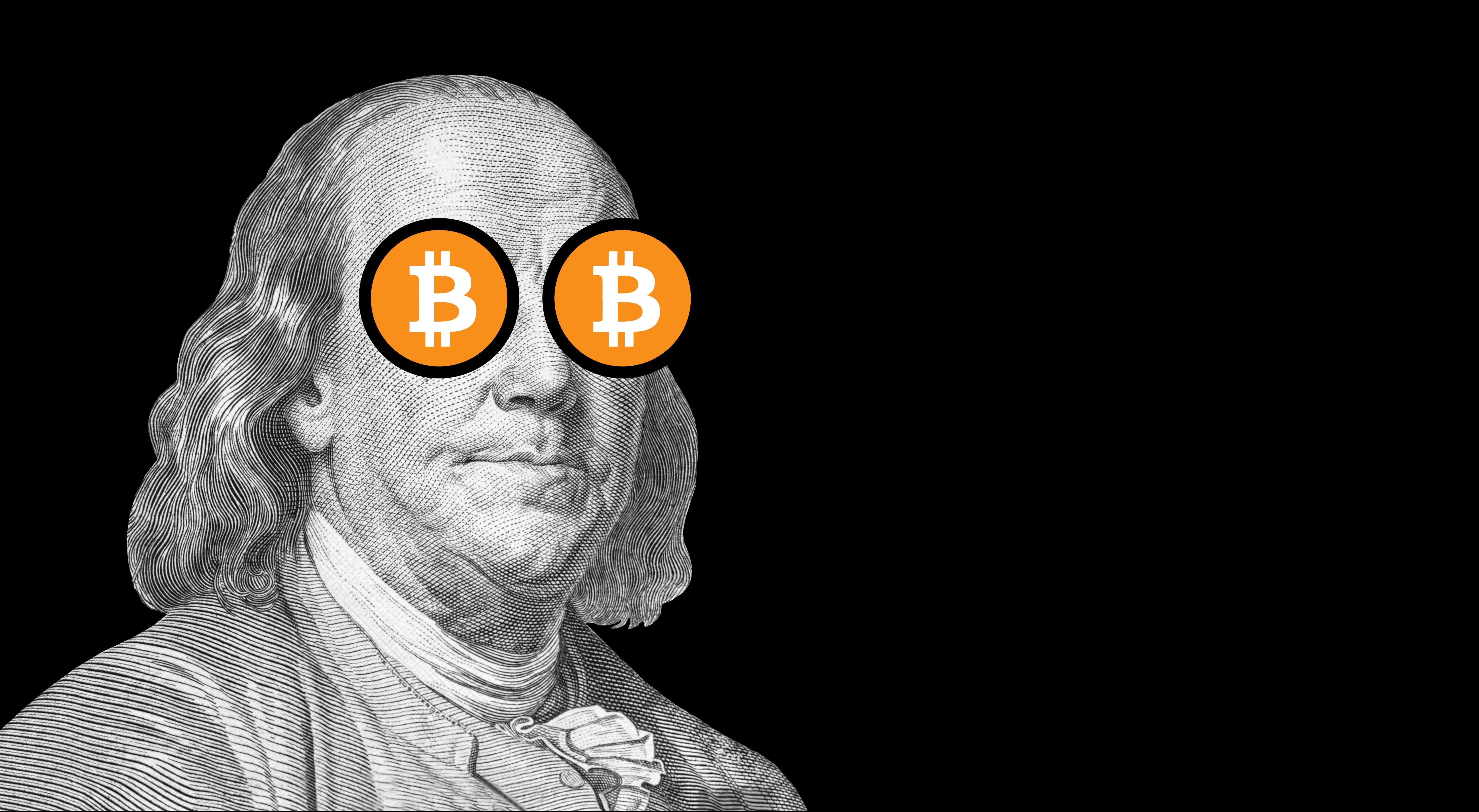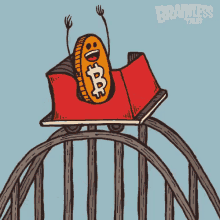Crypto fever

(Illustration: Shutterstock)
Investors speculate about when to sell their crypto currencies, banks are being skeptical, yet others hope for a reformation of the monetary system and the downfall of banks. Crypto currencies, like Bitcoin, – whether we like them or not – are here to stay. But how will they change our society? We asked a philosopher, an investor, and the founders of the organization, CryptoWomen.
2017 was the year of crypto currencies. Especially Bitcoin.
The Danish Language Council nominated Bitcoin as the word of the year. In Jutland, a sheep farmer had forgotten that he got his hands on 11 to 12 Bitcoins in 2011, which at the time were only worth one dollar each. In 2017, when the value of a Bitcoin had gone up to 6,000-7,000 dollars per coin, he sold half of what he owned and bought himself a Mercedes KL-pick up.
A little before Christmas, Bitcoin investors panicked about the sudden and extreme drop in the exchange rate, as they missed out on millions.
“We have, without a doubt, been in the middle of a crypto bubble, in which investors have been suffering from FOMO – the Fear of Missing Out,” says Nicolaj Højer Nielsen, external lecturer in entrepreneurship at CBS, start-up investor, and creator of the “fake” crypto currency Nielsen Coin.
The digital and autonomous money called crypto currencies – like Bitcoin – have spurred on some excitement and skepticism around the world. Some people dream about a revolution of the monetary system as we know it, while others fear it.
Ole Bjerg, Associate Professor and who teaches about Bitcoin at CBS, is among the people who have invested in Bitcoins, although, he wasn’t fond of the idea to begin with.

“Four years ago, I was invited to talk about Bitcoin at a conference, and back then, I was quite critical about Bitcoin without having known much about it. But then I read the so called ‘Whitepaper’ explaining Bitcoin and the technology behind it, and then I thought, ‘that’s pretty smart.’ I wanted to have some myself, because I like different kinds of money,” he says.
However, according to him, it has been a mixed experience being a Bitcoin-owner.
Take a ride in the Bitcoin roller coaster
“I have studied gambling and gambling mania, and the possibility of earning – or loosing – a lot of money all of a sudden can really affect you. I have had a couple of sleepless nights thinking about exchange rates, that’s for sure,” he says.
And so have others. Players within the established financial world, such as national banks, are especially looking at the crypto currencies with a lot of skepticism. This includes banks such as Nordea, Danske Bank and Sydbank, which have either forbidden or advised against buying crypto currencies. They fear it can get out of control, as the overall purpose of crypto currencies is to enable people to make anonymous transactions without the interference of banks.

“I don’t think it will ever take over our monetary system or change the idea of that, but I think it will be something parallel to that, giving more people access to capital,” says Julia Evenlyn Larsen, master’s student at CBS and Co-Founder of the organization CryptoWomen. She also believes that crypto currencies and the technology behind it – blockchain – have the capability of creating more equality.
But what are crypto currencies like Bitcoin, and is the hype and skepticism reasonable? Do crypto currencies have the power to change societies and our relation to money?
Money in the cloud
The idea of digital money isn’t a new concept. According to Ole Bjerg, people have tried to make virtual currencies ever since the 90s. For example ecash and OpenCoin, which is now called Ripple. However, the financial crisis in 2008 and a technological boost paved the way for a new kind of crypto currency.
On the 31st of October, 2008, the anonymous person or group named Satoshi Nakamoto published an article – the so-called Whitepaper – titled; “Bitcoin: A Peer-to-Peer Electronic Cash system” and on the 9th of January, 2009, Bitcoin and the system behind it was released. The first to receive any bitcoins was a programmer named Hal Finney.
The overall purpose of the system is to make it easier for people to make transactions without having banks as a go-between.
“If I want to send money to a person in South Korea, my money has to go through a lot of institutions that all want a little share for handling the money. I can avoid that by using blockchain and Bitcoin,” says Ole Bjerg.
You can’t say Bitcoin, without saying blockchain technology. Blockchain is the technology making the Bitcoin system work. When someone wants to make a transaction, it needs to be accepted collectively in a network of computers, which makes it nearly impossible to hack. Blockchain also makes every transaction public, but your identity can stay anonymous



Crypto gold
According to CNBC News, Bitcoins is – at the moment – the largest virtual currency by market value, and some even compare it with gold. However, Nicolaj Højer Nielsen argues that crypto currencies are not anywhere near having the same status as gold.
“When something is used as ‘store of value’, like gold, it demands a certain stability of the prices. What if you deposit DKK 1000 in the bank or gold, but didn’t know whether it would be worth DKK 300 or 3000 in a year. Crypto currencies don’t have that stability yet. Within the past two months, Bitcoin has varied between 18,000 and 6,000 USD. Only after the volatility is decreased, can you start talking about crypto currencies replacing gold in theory,” he says.
Hey Netto! Do you accept Bitcoins?
Nicolaj Højer Nielsen explains that people have high expectations for crypto currencies and that it will change things very fast. But that’s not how innovation works.
“History shows that innovation takes many years in practice. Just look at the internet for instance. The expectations for crypto currencies are humongous right now, and people believe it becomes big now, and replaces a lot now Therefore, I believe that we, in the coming years, will see a lot of negativity around crypto currencies, and that they in general are overrated, which is why I haven’t invested in them myself,” he says.
But even if Bitcoin gained a lot of trust and the volatility decreased, there’s only a small chance that you would be able to go to Netto and pay for your groceries with Bitcoins.

“Right now, the volatility of the exchange rate is a big challenge, and then some of the institutions in the established banking sector are making it increasingly difficult for the crypto market to interact with the normal money system,” says Ole Bjerg.
Crypto is shaking up the banks
As it is right now, Bitcoin and other crypto currencies are more of an investment object, rather than an actual currency you can buy things with. Furthermore, it’s only a small group of people who own crypto currencies. But still the established financial world is keeping a keen eye on the digital money.
“Even though the value of Bitcoin is vanishingly small compared to the regular financial market, the financial world is moving. Some banks have done things to prevent the crypto currency from spreading. Like telling people not to buy them. I’m skeptical of such interference in the free market,” says Ole Bjerg.
Nicolaj Højer Larsen on the other hand, is understanding of the banks’ skepticism.

Nicolaj Højer Larsen on the other hand, is understanding of the banks’ skepticism.
“The central banks are afraid, as they can see that this is a market they can’t get in control of. Their role is to stabilize the economy in terms of avoiding the overheating of the economy and recessions. They do this by controlling interest rates and the money supply of traditional currencies, but they can’t control the crypto currencies and are therefore against it. Normal banks see the crypto currencies as pure objects of speculation, which involve high risk for their employees and customers,” he says.
Controlling the uncontrollable
Then there’s the politicians and the Danish Tax Authorities (SKAT), who are not fond of crypto currencies either. Because how are you going to ensure taxation if the transactions are anonymous? The Danish authorities have had a problem of that kind before, and it was called Uber.
“Uber was closed down in Denmark due to the fact that the Danish tax authorities couldn’t control and tax the drivers. The same issues will be present with crypto currencies,” says Nicolaj Højer Nielsen.
At the moment, only a few physical shops in Denmark accept Bitcoin, however, everyone is free to accept them. But Nicolaj Højer Nielsen thinks that if Bitcoin gets used more widely, then the Danish authorities will try to regulate them on the same premises as traditional currencies.

“It is naive to think that national states won’t demand the same from the provider and receiver of crypto currencies in terms of living up to regulations such as Know Your Customer and Anti Money Laundering. So, in time they will have to live up to the same demands,” he says.
Crypto democracy
Bitcoin and other crypto currencies only exist in the cloud, but they are still going to make an impact on societies – the way we organize ourselves, fund projects, and even think about money.
“Crypto currencies make us think about what money is. It’s no longer something that’s necessarily physical. And it makes us think about how we have organized our society in relation to money, and in my opinion, that is really good. Cause, whether Bitcoin disappeared tomorrow or not, it would have made a difference,” says Ole Bjerg, who’s teaching his students about Bitcoin and the blockchain technology behind it.
When asked, how crypto currencies and blockchain technology in other ways affect or change our society, he takes a long pause to gather his thoughts.
“Blockchain makes it possible to have an economic democracy in which the customers own the companies. The customers buy a kind of stock in that company and simultaneously get a currency, which they can use for buying services from that company. It enables business ventures to raise money in a whole other way,” he says.
More equality with crypto
That other way is called Initial Coin Offering (ICO), and this is a way of funding, explains Dilek Genc and Julia Evelyn Larsen, the founders of the organization CryptoWomen, which tries to create a more welcoming space for women in the crypto and blockchain sphere. And the duo sees potential in it, especially for women.
“The investment field is dominated by males, making it tougher for women to raise funding for their projects. However, crypto currencies create new opportunities for women, as they can fund themselves with those,” says Dilek Genc, who is doing her PhD at the University of Edinburgh.

Julia Evelyn Larsen joins in:
“Blockchain technology is made to be equal and spur equality. The code is open source, giving everyone the opportunity to use it. For instance, people who don’t have any easy access to capital can get it through crypto currencies,” she says and explains that especially women and minorities will benefit from this, which is why more women with an interest in crypto currencies and blockchain are needed.
“Just like in any other area, we need female voices. We need to talk about the opportunities that these new technologies offer us, and at the same time, expose the inequality. New technologies somehow force us to have these conversations,” says Julia Evelyn Larsen.
The wild west of crypto
Nicolaj Højer Nielsen is an investor himself, and he is skeptical of the whole Initial Coin Offering funding method. He made his own crypto currency, Nielsen Coin as a joke, but he still got inquiries about his new crypto currency, and whether he wanted to sell it.
“ICO is the wild west. Start-ups who didn’t succeed in raising the necessary funding normally try with crypto currencies, and there are so many investors jumping right into it, as they hope it will become the next Bitcoin adventure,” he says. But things are changing with the extreme drop in value.

“Maybe some ICOs were successful, but after this huge drop, it will become harder to get funding in that way,” he says.
Even though Julia Evelyn Larsen sees obvious advantages of crypto currencies, she is also a little skeptical whether it can create major changes in society.
“Some hope that crypto currencies will kill banks, yet others hope it will help children. But who decides the direction? The people with the most money?” she asks.
Cyberspace becomes your bank – crypto is staying
Even though, Julia Evelyn Larsen, Dilek Genc, Ole Bjerg and Nicolaj Højer Nielsen have different opinions on the advantages and disadvantages of cryptocurrencies they all agree on one thing. They think cryptocurrencies are awesome.
“I think crypto currencies are great, but we have to have these extreme changes, before it evens out. This is the first of many drops, and innovation takes time,” says Nicolaj Højer Nielsen.
Julie Evelyn Larsen first learned about crypto currencies two years ago through a TED Talk, and then invested in the crypto currency Ethereum.
“I just wanted to be part of it, so I got myself some, and invested in Ethereum. I don’t really use it, but I really like the founder of Etherum and the idea behind it,” she says.
Dilek Genc adds:
“And then it’s just a lot of fun to be part of, and really interesting to follow.”
Ole Bjerg is going to follow the development of the unruly Bitcoin and the other crypto currencies to see whether they will run their own race or be swallowed up by existing business models.
“It’s going to be interesting to see whether it will develop on its own and challenge the establishment, or just be swallowed up by existing business models. People expected that the internet would create more democracy, but now we have Facebook and Google, who have created a massive problem, as they have massive amounts of our data,” he says and adds:
“No matter what, crypto currencies are here to stay, however, what kind is difficult to say.”


































































































































Comments